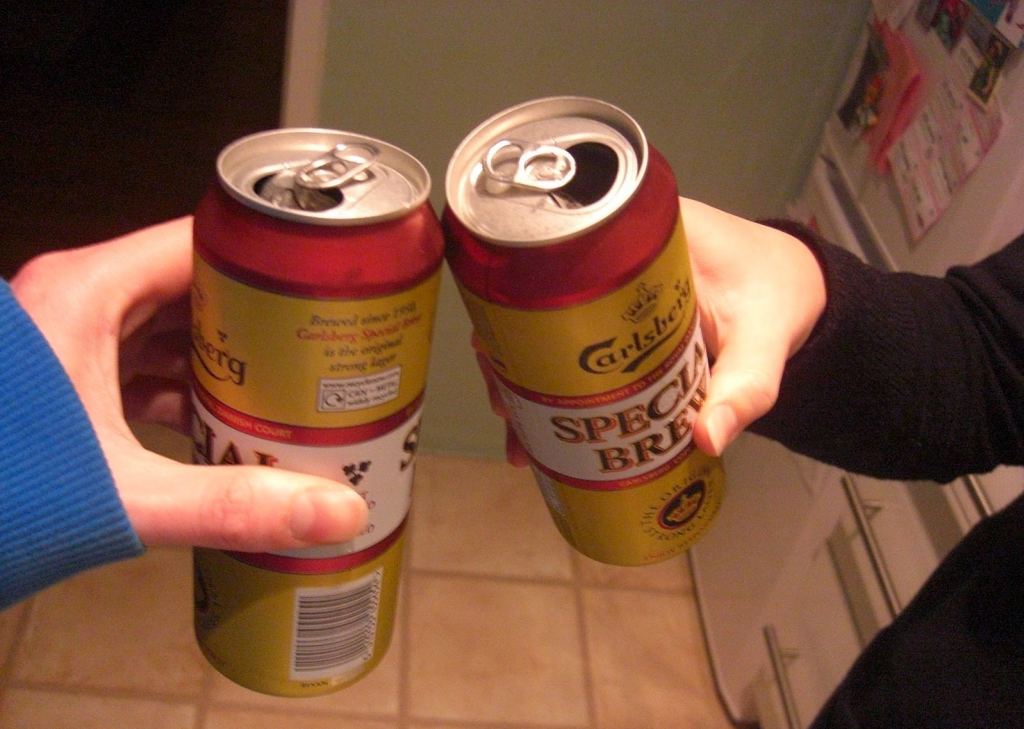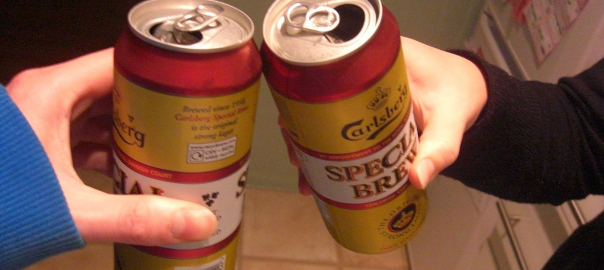As a bit of a distraction from our current woes, here’s a piece I produced for a creative writing class recently. All my classmates found this opened up a whole new world for them – none worked in social housing! However, I imagine this is a story many reading this here will be familiar with, but I offer it as a perspective on what our our profession was like 35 years ago. Feedback welcomed! John
Homes fit for Heroes
“Achhh, ye can all go an’ feck yerselves.”
The voice was unmistakeable. A slurred Derry accent, full of phlegm and fury, lubricated by strong alcohol and a raging grievance. I turned away from my desk to look out of the office window. Bridie bumped out of the door and took a long, deep breath and lifted her head in order, it seemed, to adjust her vision from short to long sight. Her fuddled brain was making the calculation of distance, orientation and velocity in order to negotiate her way down to street level.
However, a more urgent bodily need suddenly overtook these advanced calibrations. To my amusement (but knowing I should also be horrified), she unbuttoned her tatty jeans, crouched down, shuffled down whatever underwear she had on and started to pee. It seemed to go on for minutes; a steadily increasing torrent of piss flowed down the path to where it joined the public highway. Finally, she was done. She stood up, hitched up her jeans, nodded to herself as if in satisfaction for rounding off her earlier outburst in such spectacular fashion, swayed slightly and, locking on to a point somewhere in the middle distance made her stately way down the street. I could hear the clatter of buckets, mops, hot water and disinfectant being fetched from the cleaner’s cupboard.

I had been working for the housing association for a year and was keenly, probably naively committed to making sure that the colourful array of individuals who lived in my ‘patch’ were able to retain the security of a home however addicted, troubled or ill they were. The area was variously known as North Paddington, West Kilburn, Queens Park or Maida Hill depending on whether you were a local estate agent with a sharp suit and what passed for a ‘mobile’ phone in those days or a second generation West Indian immigrant family on benefits whose parents experienced at first hand the Notting Hill riots and the overt discrimination of twenty years ago. This was a time of ‘yuppies, ’ a nascent property boom and politically motivated housing policies. A popular poster seen around the streets pictured a bowler hatted civil servant with a fiercely-toothed digger for a face and the caption “We are a little worried about our landlord.”
But under these big issues, there was a community like any other, of individuals, personalities, mostly good people with some rogues and chancers. But many pursued lifestyles you would not stumble across every day. I could only speculate how they got where they were but judging was neither in my job description nor in my nature. How could I even begin to understand why Mary was so obsessed with keeping her home clean that she had completely washed away the bottom 3 feet of plaster on her flat’s walls, leaving exposed the lathe that held the rest of the wall together and an ever present pond of soapy water on her kitchen floor? Or why Christopher huddled into a panicking ball whenever there was a thunderstorm? Or why old Mr Grayling dressed in an ironed, smart shirt and clean socks and kept his boots immaculately polished by his bedside but never wore trousers?
Of all these, Bridie was someone I treasured. Because I was closer to understanding her behaviour? There but for the grace of God etc.? She was in her early 50’s and bore the scars – literally and psychologically – of what must have been innumerable abusive relationships. Her broken nose sat flat in the middle of her florid face, her wary eyes were a watery brown, her hair roughly chopped short. If you met her walking down the road, you would notice the deliberate, slightly stiff-backed gait of a serious drinker that suggested that, regardless of her state of inebriation, she had to concentrate on holding head and body upright in order to propel herself forward.
She lived in a basement flat, sparsely furnished, with a stuffing-haemorrhaging sofa, three discoloured, ratty chairs and a wooden coffee table. Although judging by the rings stained into the surface and the streaks of stale beer, it had not borne a coffee cup for many years. A print of the Virgin Mary looking mournfully across the room at a faded-to-blue photograph of a lough with a mountain in the background were the sole items decorating the walls. Curtains with a complicated brown pattern, probably of their time in the early 1970s, were usually drawn across the front bay window.
One of my jobs was to call round every fortnight to collect the rent. There were four or five regular fellow drinkers who would invariably be at her flat. Providing I arrived before mid day, I could have a coherent conversation with Bridie and the boys, catch up on their news, find out who was ill, who that week had had a problem with their benefits. Her regular companion was Gerry who once could have passed for Gene Vincent but now had slicked back, greasy, thinning hair, the deeply lined, outdoor face of a rough sleeper and an emaciated, puny body. These days, any rock ‘n’ rolling he might still have aspired to would have been severely hampered by the fact that he only had one leg. Often, when settling in for a session, he would take off his prosthetic limb and stand it next to his chair and the six pack of extra strong lager.
With a drunken inevitability, he would row with Bridie and the other men would take sides depending on who was fuzzily perceived as the victim and who the aggressor. Bridie told me that she had become so angry with Gerry on one occasion that she had swiped his disconnected leg, taken it outside and “chucked it in the skipper.”
Over time I was gradually welcomed into this half lit environment and graduated from appearing at the door as the Rent Man to regularly being offered “a wee brew” and a fried egg sandwich. At 11.00 in the morning, initially at least, this was not hard to turn down. But such was the strength of a personal bond and, to my young mind, the importance of sustaining a trusting relationship, that I did occasionally succumb.
At the time it did not seem extraordinary that I walked the streets of North Paddington with a few hundred pounds of other people’s rent money, maybe after a few sips of drink and was required then to add up the takings back at the office.
How I behaved probably stood contrary to common sense and rules were bent. But they were warped out of shape to keep families together in decent homes and to play the welfare system so they could pay the rent. It was important that Bridie had somewhere to have her drink-fuelled arguments, somewhere to go to the toilet that wasn’t a public thoroughfare, that the heroin addict in the next street had somewhere safe to self medicate and the young ‘mad’ boy had somewhere to shout obscenities at his voices.
Different times.



